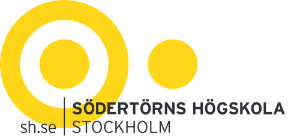Deciding the demos: three conceptions of democratic legitimacy Beckman, Ludvig Stockholms universitet, Samhällsvetenskapliga fakulteten, Statsvetenskapliga institutionen. Institute for Futures Studies, Sweden. 2019 (Engelska) Ingår i: Critical Review of International Social and Political Philosophy, ISSN 1369-8230, E-ISSN 1743-8772, Vol. 22, nr 4, s. 412-431
Abstract [en]
The prevailing view is that democratic procedures are unable to confer democratic legitimacy to decisions about democratic procedures. This paper examines this claim in detail and uses referendums on the inclusion of previously disenfranchised groups in the demos as a running example. The paper distinguishes between pure, imperfect and quasi-pure models of procedural democratic legitimacy and sub-versions of them. To various extents, each model does have the capacity to confer legitimacy to demos decisions under well-defined circumstances. The paper argues that quasi-pure procedural legitimacy represents the most promising account of democratic legitimacy in cases where democratic procedures are the subject of collective decision-making. According to this model, the decision to revise the rules for membership in the demos is permissible by democratic standards if and only if the revision is not forbidden by democratic principles for inclusion. The point is that the range of alternatives that are not forbidden by democratic principles of inclusion are likely to be considerable due to vagueness of the principles themselves and/or them being subject to reasonable disagreement. The paper concludes with a discussion about the possibility of democratic legitimacy for democratic institutions not introduced as a result of democratic decision-making.
Ort, förlag, år, upplaga, sidor
2019. Vol. 22, nr 4, s. 412-431

